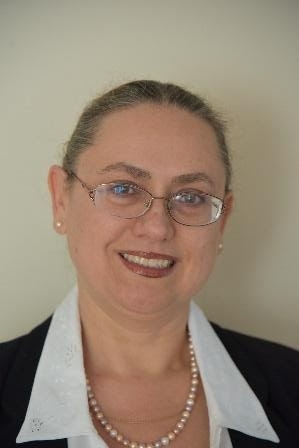On the Role of Mass Spectrometry in Cancer Research

Iulia Lazar earned her Ph.D. in Chemistry from Brigham Young University. Following two postdoctoral appointments at Sensar Larson-Davis and Oak Ridge National laboratory, and a Principal Research Scientist position at The Barnett Institute/Northeastern University, she joined The Virginia Tech Bioinformatics Institute in 2003. Currently, she is a Professor in the Department of Biological Sciences, with additional appointments in Health Sciences and at the Carilion School of Medicine at Virginia Tech. Her research interests evolve at the interface between technology development and biology, with focus on exploring the molecular mechanisms of breast cancer cell cycle regulation by using mass spectrometry-based systems biology approaches. Her laboratory develops microfluidic and proteomic technologies for investigating the pathways that enable cancer cells to bypass tightly regulated molecular checkpoints, proliferate in an unrestrained manner, metastasize and hijack normal biological function. The findings of her research have led to over 70 peer reviewed publications and book chapters, two patents, and over 140 presentations at national and international symposia. She is a member of the American Chemical Society, the American Society for Mass Spectrometry, and the Human Proteome Organization. She served on numerous NIH, NSF and international review panels, and in recognition of her scientific work she received numerous awards, including the Loren C. & Maurine F. Bryner Fellowship, H. Tracy Hall Award, the John N. Hatsopoulos Scholar Award and an NSF-Career Award.
Modern, high-content biological research is performed with advanced technologies capable of generating massive amounts of data for advancing our understanding of complex diseases such as cancer. In our laboratory, we are pursuing the development of mass spectrometry and proteomic technologies for exploring the mechanisms of cancer progression. In this presentation I will discuss how mass spectrometry can be utilized to gain insights into the molecular mechanisms that govern uncontrolled cancer cell proliferation, explore dysfunctional signaling pathways, identify driver mutations, and screen for the co-expression of functionally related biomarkers that could be recommended for further consideration in clinical context. I will also address the challenges associated with the interpretation of large-scale data in a cohesive biological context. Last, I will review the impact and future prospects of mass spectrometry in biomedical research.
This seminar has no suggested readings.
Flyer not yet available.
This seminar will be livestreamed and recorded on the Fralin YouTube channel.


